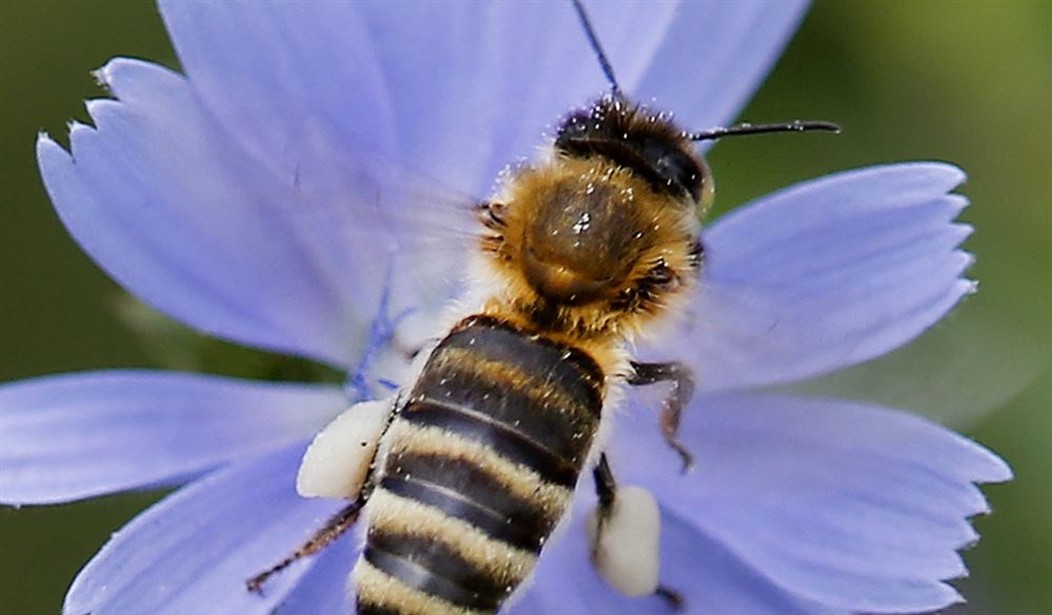Here in the Great Land, the year is punctuated not only by the four seasons (June, July, August, and winter) but also by other seasons - such as salmon season, grouse season, moose season - and mosquito season. In another month or so, Alaska's 20-some species of mosquito will start making their presence felt, and I use the term advisedly; I'm sure some Alaska mosquitoes are big enough to show up on air-traffic radar. Ask any Alaskan, or for that matter people from plenty of other mosquito-rich locations, and I'm sure most of them would be happy to get rid of mosquitoes once and for all.
Plenty of insects, however, are not only innocuous but downright helpful. They clean up organic junk in the environment and pollinate plants, including a lot of our food crops. So if insects in general were to suddenly disappear, it would be a pretty bad thing.
So, when climate scolds and environmental activists start shouting about an "insect Apocalypse," plenty of folks sit up and take notice. There's just one problem: What the scolds are shouting about just isn't happening. On Friday, Jon Entine of the Genetic Literacy Project dropped some facts on us.
Insect Armageddon, another popular phrase, is now one of the most common tropes in science journalism. As I’ve chronicled numerous times in recent years, (including here, here and here), many journalists have echoed claims by environmental activists advancing a succession of insect- and animal-related environmental apocalypse scenarios over the last decade—first honeybees, then wild bees and more recently birds. In each case they fingered modern, intensive farming, particularly crop biotechnology and pesticides, as the culprit, and warned of the terrible consequences in store for the Earth, including the mass extinction of pollinators and the global famine that would surely follow. In each case, small or poorly executed studies predicting imminent catastrophes were ballyhooed by many in the media; in each case, as more research came to light, the hyped claims were eventually retracted or dramatically readjusted.
Here's where the activists and flawed models go wrong:
Researchers at the German Centre for Integrative Biodiversity Research, Leipzig University and Martin Luther University led by first author Dr. Roel van Klink analyzed almost a century’s worth of data from 166 long-term insect surveys in various parts of the world. While the far-reaching study has certain limitations (which I will address farther on), it needs to be reckoned with by anyone seriously concerned about the ecological future. A short list of the topline findings:
- Overall, terrestrial insects are declining much less rapidly (3 to 6 fold less) than other recent high-profile studies had suggested, and even this likely overstates the trend. Freshwater insect populations are actually increasing.
- “Crop cover,” which means things like corn, soybeans, sorghum, cotton, spring and winter wheat, alfalfa and hay, is associated with increases in insect populations.
- There is no association between insect population trends and global warming.
- The only clear association with insect declines is with urbanization, likely caused by habitat destruction, light pollution and waste pollution.
This is how science is done, folks: an open, reproducible examination of data, which in this case ends up largely debunking the claims of environmentalists - who, again, seldom listen to those of us who live out in the actual environment, where there are assuredly plenty of bugs.
See Related: Environmentalists Launch Effort to Save Salmon, End up Killing Hundreds of Thousands Instead
DeSantis Knocks the Wind Out of Climate Alarmists
That's not to say that human activities don't have an effect. There can't help to be some effect on insect populations when you consider the use of agricultural pesticides, which are, after all, intended to kill insect pests that can destroy crops. But the cover crops described in this piece actually increase insect populations, and from personal experience, I can tell you that a place with lots of rice fields, like southern Japan, where I lived and worked for a while, produces mosquitoes and other insects in prodigious quantities. It's not just mosquitoes, either; the spectacle of millions of Japanese fireflies over the rice paddies at night in Kansai is one of the most beautiful things I've ever seen in all my travels.
Read this entire article; there is a lot of specific debunking that is beyond the scope of this piece to discuss in detail.
Insects are amazingly resilient critters. They adapt quickly to changing conditions, and in general they're even amazingly resistant to radiation. Developers of agricultural and household pesticides are constantly in a biological arms race with insect populations that rapidly develop resistance to new chemical agents.
Insects have been around at least since the Ordovician, about 485 million years ago. They'll be around long after we're gone. They have survived every variation in climate the Earth has tossed at them, and they'll survive anything the Earth throws at them in the future, no matter what the climate scolds and environmentalist Chicken Littles claim. So grab the Deep Woods Off and get ready to start slapping, because mosquito season is on the way, and it's going to be coming around every summer for as long as humans are around to slap and scratch.















